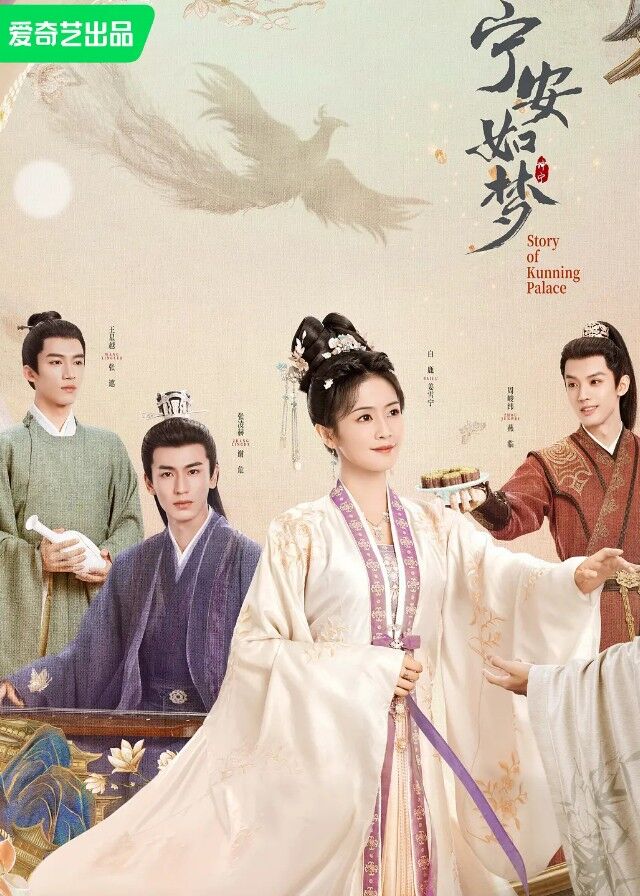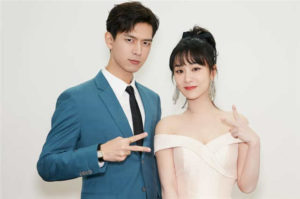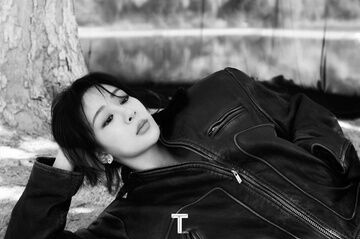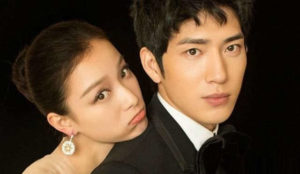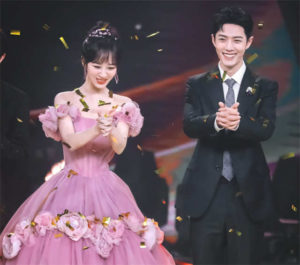The Psychologist Episode 16 Recap
> The Psychologist Recap
Qian Kaiyi convened a meeting with his colleagues to discuss future radio program planning, emphasizing the need for stronger listener engagement. He had Li present the most popular comments collected from their official social media accounts. Qian Kaiyi proposed regularly gathering such comments and selecting topics that resonate with society for their show, a suggestion his colleagues enthusiastically supported. Dongzi took the opportunity to apologize for a previous argument.
During the discussion, Li shared a comment from a freshman who felt isolated in a new environment, unsure whether to maintain solitude or actively integrate. Another colleague mentioned a workplace case where a strict boss caused an employee significant anxiety.
Li then shared a comment from an account named "Mo Yan Mo Yu" about a person who found it difficult to refuse colleagues and felt used, remarking on how difficult it is for people who can't refuse others to thrive in the workplace. Another colleague, however, dismissed this, claiming it was easy to refuse and that such individuals were a minority, so the topic wouldn't resonate with a broad audience.
Li countered that inability to empathize stems from not being the one hurt, and questioned if the colleague was certain they had never hurt anyone. Qian Kaiyi intervened, agreeing with Li that there's no absolute standpoint. He stressed that how they treat others defines who they are, and every broadcast should help diverse listeners find their own answers. Ultimately, they settled on "How to Say No to Others" as the theme for the next episode.
Qian Kaiyi noted that both students and office workers frequently encounter situations where they want to refuse but find it challenging, and most people are not skilled at refusal. He further proposed encouraging listeners to share stories of successful refusals to inspire courage. Everyone agreed to this idea, and Qian Kaiyi finalized the title as "Say No." He Dun continued her therapy session with Mo Yu, asking him to imagine her as a colleague to facilitate conversation.
When role-playing a colleague asking for help, Mo Yu reluctantly agreed. He Dun then pressed him to describe his thoughts and fears if he were to refuse, to which Mo Yu admitted he feared the colleague would get angry, isolate, and exclude him, making him feel like a "terrible person" and difficult to get along with. He even imagined the colleague questioning their relationship due to his refusal, thinking "Are we even colleagues from the same company anymore?"
He Dun observed that the fear of isolation and conflict was a very serious matter for Mo Yu, causing him to constantly accommodate others, thus unconsciously making being liked his most important life goal. Mo Yu confirmed this, expressing regret for habitually agreeing to things he didn't want to do, driven by the fear of causing significant conflict. He Dun explained cognitive behavioral therapy, where automatic negative thoughts about refusal lead to people-pleasing, overriding his true feelings.
Recognizing that Mo Yu rarely refused, He Dun proposed a "behavioral experiment" as homework. She gave him a form to record instances where he attempted to refuse colleagues and the actual outcomes, to compare them with his anticipated fears. He Dun assured him that this was not to prove him wrong but to explore problems together, expressing confidence in their ability to overcome difficulties. Mo Yu, deeply moved by He Dun's understanding, then asked if they could become friends.
He Dun felt honored by his proposition but gently explained that therapist-client friendships are ethically problematic due to potential conflicts of interest, as dual relationships would affect a therapist's professional performance. She suggested they explore his desire for friendship in their next session, emphasizing its importance to him, before concluding the session. Later, Qian Kaiyi called He Dun to inform her about the new radio topic, "How to Say No to Others."
He jokingly added that she was already adept at refusing, so she didn't need to over-prepare, implying she often refused him. He Dun, sensing he was teasing her, abruptly ended the call, stating she was hanging up if he had nothing important to say. Back at the office, as Qian Kaiyi and his colleagues struggled to straighten a wall poster, one colleague quipped that Qian Kaiyi seemed stressed and needed He Dun's counseling.
Qian Kaiyi then asked his colleagues what type of man was less likely to be rejected by women. A colleague responded that it depended on the woman, adding that He Dun's preferences were a mystery, but generally, women liked brave, confident, and resolute men. When Qian Kaiyi asked Li if he fit that description, Li bluntly called him narcissistic.
Another colleague shared an analysis: a man who frequently appears in a woman's life, takes care of her and her family (even bringing dumplings), and offers romantic gifts has a very high chance of not being rejected. This colleague subtly hinted that Qian Kaiyi, who merely talked about dumplings, was a "pathetic coward." The conversation ended with a playful exchange about ill omens for starting things that day.
The qualities described by his colleagues, particularly those related to attentiveness and romantic gestures, made Qian Kaiyi increasingly aware that Ye Jiahui seemed to embody them all, fueling a growing sense of rivalry. The radio program, "Heart-to-Heart Night Talk," began, discussing people who are overly introspective and feel unworthy if they fail to meet others' expectations. The host encouraged listeners to break free from habitual thinking and live for themselves.
As Mo Yu listened to the broadcast, a colleague approached him, asking for help with a 5,000-character PowerPoint presentation that needed to be submitted that day. Inspired by the radio show's message and the ongoing "Say No" sharing event, Mo Yu, for the first time, found the courage to refuse his colleague. He calmly stated that he had finished his own work and was going home, then walked away, leaving his stunned colleagues to wonder about his sudden change.
Late that night, Qian Kaiyi's team was still working overtime, sifting through comments due to the unexpected popularity of their new topic. Seeing their exhaustion, Qian Kaiyi insisted they all go home and rest, even threatening to withhold their monthly bonuses if they stayed. Once they left, Qian Kaiyi remained alone in the radio station. Suddenly, strange noises filled the room, a printer spontaneously ejected a blank sheet of paper, and the lights began to flicker erratically.
Terrified, Qian Kaiyi ducked under a desk and called He Dun. He stammered that he was scared, his "heart cramping," and asked her to come pick him up. Initially, He Dun was annoyed, thinking he was joking, but Lili, who was with He Dun, took the phone. Lili, after hearing Qian Kaiyi's genuinely frightened voice, urged He Dun to let him come over, even claiming half-ownership of the apartment and agreeing on He Dun's behalf.
He Dun, sensing Qian Kaiyi's real fear, suggested they gather more people and play board games, asking Lili to invite Ye Jiahui as well. On the phone, Qian Kaiyi playfully asked if He Dun only wanted to see him, which she denied. After Qian Kaiyi arrived, Ye Jiahui was also called to He Dun's apartment, and the four of them began playing Uno.
Ye Jiahui, who claimed to have never played before, quickly grasped the rules and exchanged playful barbs with Qian Kaiyi throughout the game. He Dun was delighted to discover Ye Jiahui shared her admiration for psychotherapist Irvin Yalom, and she readily agreed to lend him two of Yalom's novels. The game was filled with competitive banter, particularly between Qian Kaiyi and Ye Jiahui, who constantly made subtle digs at each other, with Ye Jiahui even winning a round.
During a break, He Dun received a call from Professor Ji, agreeing to bring him a file the next morning. Qian Kaiyi commented on He Dun's bookshelf, noting it contained theoretical books but few case studies. He Dun explained her professor had an abundance of approved client cases. Ye Jiahui then interrupted Qian Kaiyi, accusing him of being boring and pestering He Dun.
Qian Kaiyi, still feeling competitive, challenged Ye Jiahui to another round, to which Ye Jiahui remarked he'd never seen anyone take two games to learn Uno but agreed to play until dawn. The next morning, Ye Jiahui drove He Dun to Professor Ji's residence.
While in the car, Ye Jiahui asked He Dun about Professor Ji, recalling that his previous impression of the professor from books and an interview was that he seemed like a rigid old scholar, but he now felt that might be a misunderstanding. He Dun described Professor Ji as serious and dedicated, yet sometimes playful like a child, and at other times mature and fatherly. She expressed deep trust in him, saying he unconditionally supported her work and studies.
Ye Jiahui commented that such trust might lead to hurt, adding, "I hope your trust won't be betrayed." Lili informed Qian Kaiyi over the phone that He Dun had gone out with Ye Jiahui, playfully hinting at their potential romantic involvement and calling Qian Kaiyi a "third wheel." Upon arriving, He Dun initially told Ye Jiahui not to wait for her, as she anticipated a long meeting.
However, she suggested he step inside to greet Professor Ji, remarking on the Professor's amiable nature and their overlapping professional fields. At this suggestion, Ye Jiahui paused, looking distant, as if old memories were resurfacing. He quickly composed himself, though, attributing his state to a lack of sleep and joking that Qian Kaiyi should treat them to a compensatory meal. He Dun, noticing his weariness, urged him to take a designated driver home for safety.
Inside, He Dun formally introduced Ye Jiahui to Professor Ji. As Ye Jiahui greeted the Professor, a flood of distant memories visibly overwhelmed him, but he skillfully maintained a facade of polite normalcy. Shortly after, Ye Jiahui abruptly left. He Dun, concerned, apologized to Professor Ji for her friend's unusual behavior, speculating he had an urgent matter, and stepped out to check on him. Outside, Ye Jiahui was heard on the phone, arranging to meet his father that afternoon.
When He Dun returned, Professor Ji, offering her some refreshing Mingqian Longjing tea, casually inquired about Ye Jiahui, complimenting him. He Dun, slightly exasperated, accused her professor of being as gossipy as her mother. Professor Ji then revealed that He Dun's mother had expressed approval for both Ye Jiahui and Qian Kaiyi.
He Dun was annoyed, asserting that her personal life was off-limits for their interference, but the Professor, presuming on his age, emphasized the importance of choosing a partner wisely. He then shifted the conversation to a professional topic, asking about the progress of the literature she was translating. He Dun reported that she had already extracted the experimental data and core arguments. Professor Ji then asked He Dun about her insights from the translation.
He Dun explained that bipolar disorder is far more complex than she had imagined, especially regarding cognitive dysfunction. She noted there's no conclusive evidence to determine if the dysfunction is drug-induced or an inherent part of the disorder. If it's drug-related, it's largely irreversible. He Dun suggested that non-pharmacological cognitive interventions might be the most suitable approach. Professor Ji acknowledged this as her area of expertise, mentioning cognitive therapy and cued recall training.
He Dun agreed, seeing it as a potential "key to unlocking that cage" for patients, though still undiscovered. Building on Ye Jiahui's earlier suggestion, she proposed that since bipolar patients primarily lose "free memories" while "cued memories" remain largely unaffected, intact cued memories could be utilized to help them regain lost memories. He Dun observed that Professor Ji likely already had this answer but deemed the path unviable. Professor Ji agreed with her assessment, stating that she understood him well.
While he conceded that her direction was correct, he expressed reservations, pointing out that memories are subjective, making "other people's memories" inevitably a "Rashomon scenario." He Dun countered, asserting that even if it led to a "Rashomon," they must try if it could help patients find hope. She then asked if the patient had any intimate contacts—a spouse, relative, friend, or someone who shared precious memories—who could potentially provide cues.










